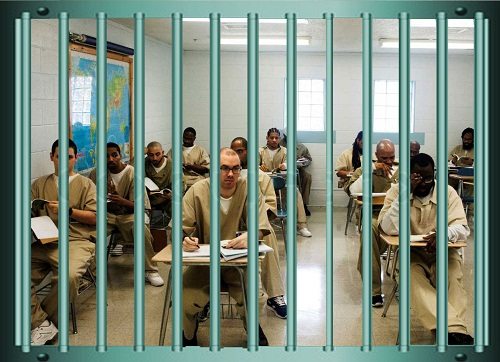Grants for Convicted Felons for College – Did you use to think that once you’re a convicted felon your future is over? Many people think that way. This is a common misunderstanding that happens in a lot of people with a history of convictions. Do know that college grants for convicted felons are available.
These days, college education is expensive. There’s almost no way for someone to get through college without some form of financial aid. One of the most common sources of financial aid is college grants.
The misconception I mentioned earlier often discouraged many ex-convicted felons from applying for a college grant. This is a wrong information that needs to be clarified.
How to Get College Grants for Convicted Felons
The first wise step to get grants and scholarships for felons is to fill out the FAFSA (Free Application for Federal Student Aid). Commonly known as the Federal Pell Grant, this grant is the door for other felon college grants you need. This is why you need to complete and submit the FAFSA application. It’s free, and you get the chance to receive the college grant.
The Federal College Grants for Convicted Felons Requirements
Below are some of the requirements you need to fulfill in order to be eligible grants for felons for college:
- U.S. citizenship or eligible non-citizen
- Valid Social Security Number
- Can proof that you have financial need
- Have high school diploma, GED certificate, or pass the ATB test
- Enrolled or accepted in an eligible program in eligible schools or college.
- Not owe a refund on a federal grant or be in default on federal student loan
- No possession or sale of illegal drug convictions DURING your enrolled time in the school or college.
This means that if you are a drug convicted felon BEFORE enrolling in the college, and you are not currently receiving federal financial aid, you may still be qualified for federal college grants for convicted felons.
More information about Federal School Grants for Felons
- Incarceration
People who are incarcerated have limited eligibility for federal college grant. This means that if they are enrolled in federal or state institution, they are not eligible for Pell Grant (there’s a chance getting FSEOG and FWS grants, but it’s a long shot). If they are in other institution they may qualify for the federal Pell grant. Once released, the limitation is removed.
- Probation / Parole
People who are on probation or parole may be eligible for federal college grants. They have the same chance to any other students, except for the ones who are convicted with drug-related offense (these guys get limited eligibility).
- Other Convictions
There is another conviction aside of drug-related offense that may disqualify your eligibility for grants for felons to go to college. People who have been convicted for forcible or non-forcible sexual offense have their federal college grants eligibility removed.
- Other Options
Getting school grants for convicted felons will certainly help a lot, but there are other possible grants and scholarships for convicted felons, including the one from Federal Re-entry program and from your State’s Departments of Labor. The latter one may have information on available felony grants for college, so you should visit them and ask.
images: percaritatem.com, scpr.org.




